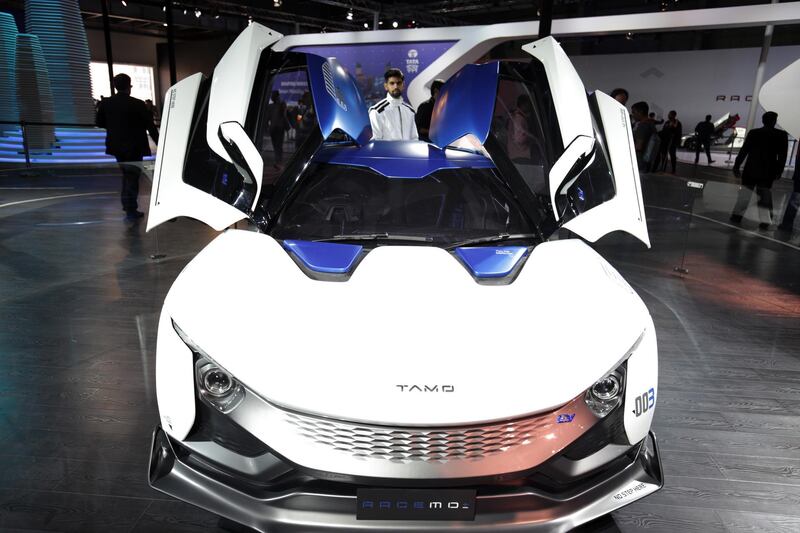India’s dependence on imported components for electric vehicles could make the country vulnerable to cyber-security breaches, according to the government’s chief policy think tank.
India should manufacture the majority of the parts needed for its electric vehicle fleet as equipment shipped from overseas could be compromised, VK Saraswat, a member of the think tank, Niti Aayog, said. All of the software and at least 55 per cent of the components need to be made domestically to keep electric vehicles and the grid secure.
“There has to be a push toward local manufacturing,” Mr Saraswat said.
Prime minister Narendra Modi's administration said last year it aims to have mostly electric vehicles by 2030, in a country where about three million fossil fuel powered passenger vehicles sell annually. In an attempt to jump-start the nascent electric vehicle market, India recently conducted its first tender to buy 10,000 electric cars for government use that was won by Indian car makers Tata Motors and Mahindra & Mahindra.
Some foreign automakers are also hoping to get into the new segment. Hyundai is poised to be the first global maker to introduce an electric vehicle in India next year, with plans to bring completely-knocked down kits from its factories at home in South Korea.
While China manufactures everything from a chip to a converter for its electric vehicles, Indian automakers use imported electronic equipment, Mr Saraswat said.
_______________
Read more:
[ India on road to electric car future but roadblocks remain ]
_______________
Local electric-vehicle makers import nearly 80 per cent of the core of an electric car, including the battery and the battery management system, according to Kavan Mukhtyar, who leads the automotive practice at PwC India. The local supply chain is nascent because there are hardly any volumes, with India expected to have as many 10,000 battery-operated four-wheelers and about 100,000 two-wheelers by the end of March, he said.
"In several industries where we take equipment from abroad, there have been instances where there's a backdoor entry left open and information does go back to the equipment supplier, which could in future have implications for national security," said Supratim Chakraborty, an associate partner at legal services company Khaitan & Co.
The Central Electricity Authority (CEA), India’s planning body for the power sector, has submitted a report to the government on cyber-security for electric vehicles. One of the suggestions is to ensure EVs and charging stations don’t have the same communication system, so there’s a firewall preventing a car from communicating with the power grid, CEA Chairman Ravindra Kumar Verma said.
“Some of the Indian government’s concerns may just be to help justify supporting the domestic industry,” according to London-based Colin McKerracher, manager for advanced transport insight at Bloomberg New Energy Finance. No country makes all the components that go into a car, so many of these risks are already present, he said.






